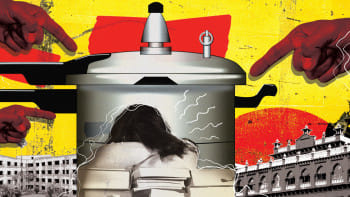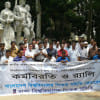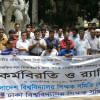Starting your journey at a public university: What you should know

The university admissions phase is difficult, which is something most students who have gone through it can testify. The final stretch of finishing school/ college with preparations for HSC or A levels, followed by months of preparing for entrance exams with a seemingly unbounded syllabus, certainly takes a toll on you, and at the end of it, it's quite natural to want to sit back and relax until classes start.
The time right after getting into a public university can be surreal. On one hand, you will have your prodigal friends who can't wait to embark on their undergrad life, already gathering study materials for the first semester and devoting themselves to learning without so much of a breather. On the other hand, the burnt out population of the successful admissions candidates decide to enjoy their moment of freedom with tours and outings nearly every other day.
However, regardless of whether you're the sort of person who wants to sit at home and or go on adventures, there are certain things you can prepare for, in order to make your transition into university life a little easier.
To get the basics out of the way, it's best to make a back to school list beforehand. Getting some new book bags, stationary items, water bottles and accessories could really put you in the spirit of starting a new journey. It's rather difficult to get through university without a personal computer of your own, so if you don't already own something, you should begin researching what's right for you – something portable, or high in configuration.
Since you can't simply enroll in a department of your choosing in public universities, it's best to research which subjects you really want to study. There is a process of subject distribution based on your merit position in the admission test, which generally begins with you having to submit a list of subjects according to your preferences.
Mehjabeen Rahman, a student of International Relations at Dhaka University, recounts her experience of the admission process, "Everyone prepares you for the admission test but it's just the first step in the grand scheme of things. In DU, after your merit is published, you have to submit a subject preference list, which can be overwhelming. Not to mention, after you're initially given a subject based on your merit position, you can still change your subject through the auto migration process if seats are empty."
Right after your results are published, you should brace yourself for a lot of paperwork. It's best to have all the necessary documents on hand, including your certificates from board exams or their equivalents. It's also smart to make extra copies of both passport and stamp size photos, as you'll be required to submit many of them at different points of the process. If your university requires medical documents, then you should get all the necessary tests done soon after the announcements are given.
"The admission process was rather taxing, as I found the system to be all over the place," adds Mehjabeen. "I had to go to the bank, pay the fees, submit the paperwork back at my department, and then take everything to the assigned hall to get admitted, but I had to do this three times because I was told to return the next day."
Anjarat Ibnat Awal, who is currently enrolled in the Institute of Business Administration of Jahangirnagar University (JU), mentions how important it is to get your papers in order. "You should be notified about all the necessary paperwork, but you should take some extra care in gathering documents relevant to your quota if you're eligible for one. I was eligible for a quota under the grandchildren of freedom fighter criteria and had to collect certificates from the specific union my grandfather was registered under. So it's best to prepare in advance, I missed out on a viva for Dhaka University's D-unit because I overlooked the section where instructions for quota applicants were given."

The preparation for starting university doesn't just end with the paperwork, learning to make social adjustments is also necessary. Public universities accommodate students from diverse backgrounds and social settings, which may cause a clash of opinions or beliefs.
However, your classmates are an indispensable part of university life, so you have to get into an unprejudiced mindset to make your journey more pleasant. For students who are moving to a different city for education, it's advisable to scope out the area and work through the intimidating concept of relocating.
Mithila Farzana, a student of Rajshahi Medical College, echoes this sentiment, "University is a vast place and you will likely meet people from all over the country. Being accepting of their cultures and beliefs is a basic courtesy everyone should follow. If you're going to share your room with your roommates, get ready to make adjustments and be empathetic towards their situations."
Moving on to the academic aspect of things you can prepare for beforehand, Mithila believes that making lifestyle changes from earlier on can come in handy. "All of us feel more or less overwhelmed by the syllabus at first in Medical Colleges, but you should know you'll eventually get the hang of it. You can learn some relevant vocabularies and terminologies, which can at least give you a sense of familiarity. Getting into the habit of waking up early, building healthy habits like punctuality will really help you in the long run if you're consistent."
Hasib Ur Rashid Ifti, a student of Electrical and Electronic Engineering in Bangladesh University of Engineering and Technology (BUET), points out that not everyone will have the same academic journey. "Something I wish I knew about beforehand is the sheer difference in how teacher's teach, behave, and grade. One section might have an amazing teacher, whereas the other section wouldn't be so lucky. This affects both how you perform and the grades you receive. So you may have to collect resources from other sections and previous years."
As the admission tests are fiercely competitive, you might even feel a little intimidated to be around your peers but you shouldn't allow that to discourage you.
In this regard, Hasib adds, "If you get into a good public university, chances are, everyone else is going to be super smart. I'm surrounded by people who scored among the firsts in the BUET admission test, even the worst student in my class is extremely intelligent, so the initial fear can hit hard."
Last but not least, allowing yourself time to unwind should be high up on your priority list. Make yourself busy with some hobbies or stay in bed and binge all day, as university doesn't allow much breathing space save for breaks. If you have to leave your home, spend time with your family as much as you can. The journey ahead can appear daunting, but a promising new chapter of your life awaits here.
Zabin Tazrin Nashita is a student at Islamic University of Technology.

 For all latest news, follow The Daily Star's Google News channel.
For all latest news, follow The Daily Star's Google News channel. 










Comments